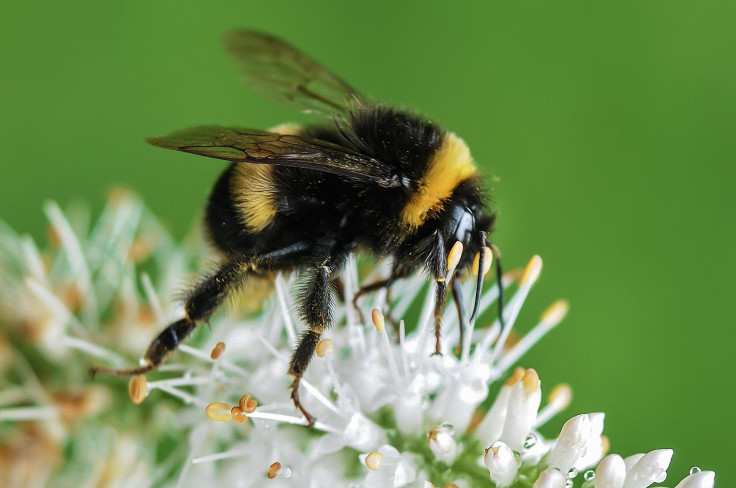Climate Change News: Bumble Bees Are Crucial To The Environment, Species On The Decline Due To Warmer Temperatures

KEY POINTS
- Bumble bees are a vital pollinator of wildflowers and crops, and could go extinct due to global warming
- A study from the University of Ottawa shows that between 1975 and 2000, bumble survival rates in North America fell by about 46% on average, and 17% in Europe
- Other species harmed by climate change include polar bears and sea turtles
Bumble bees are an important pollinator of wildflowers and crops, but global warming is causing their populations to decrease around the world, a recent study says.
University of Ottawa biologist Jeremy Kerr, along with scientists Tim Newbold and Peter Soroye, published the study, “Climate change contributes to widespread declines among bumble bees across continents” in the journal “Science” on Feb. 7. The research says the odds of bumble bee survival in any given location have decreased an average 30%.
“Bumble bees are the best pollinators we have in wild landscapes and the most effective pollinators for crops like tomato, squash and berries,” Peter Soroye said in a statement. “Our results show that we face a future with many less bumble bees and much less diversity, both in the outdoors and on our plates.”
Between 1975 and 2000, bumble bee survival rates in North America fell by about 46%, and dropped by about 17% in Europe.
Scientists developed a method to figure out how events caused by climate change, such as heatwaves and droughts, affect bumble bee populations.
“We have created a new way to predict local extinctions that tells us, for each species individually, whether climate change is creating temperatures that exceed what the bumble bees can handle,” Dr. Tim Newbold said. The measure could be used to predict the extinction risk of other animals, such as reptiles and mammals.
According to the U.S. Department of Interior, Polar Bears are a mammal most threatened by climate change, as their sea ice habitat melts due to warmer temperatures. Sea turtles are another species at risk due to increased sea level rise, higher temperatures and increased storminess caused by climate change.
A recent study from the University of Arizona suggests that a third of all plant and animal species on the planet could face extinction by 2070 due to climate change.
© Copyright IBTimes 2025. All rights reserved.





















